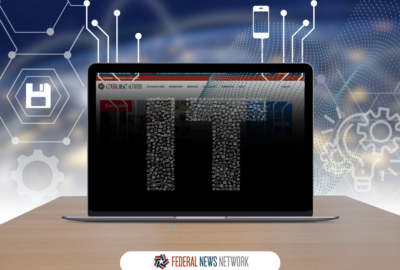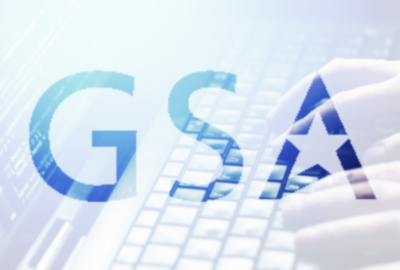FACT CHECK: Talking heads skew ‘net neutrality’ debate
By ANNE FLAHERTY Associated Press WASHINGTON (AP) — Is President Barack Obama taking over the Internet? Not by a long stretch, but that’s not stopping...
By ANNE FLAHERTY
Associated Press
WASHINGTON (AP) — Is President Barack Obama taking over the Internet? Not by a long stretch, but that’s not stopping political banter in the “net neutrality” debate.
The Federal Communications Commission will vote Thursday on whether to put Internet service in the same regulatory camp as your telephone. That means broadband providers like Comcast, Verizon, AT&T, Sprint and T-Mobile must act in the “public interest” when providing your Internet connection and conduct business in ways that are “just and reasonable.”
The goal, as stated by regulators: Prevent those service providers from creating paid Internet “fast lanes” and charging sites such as Google, YouTube and Netflix to move their data faster than others.
Some critics talk about the plan like it’s a government takeover of your Netflix account. Supporters say it’ll protect the status quo without price controls or new taxes. But the lobbyists and politicians aren’t telling the whole story.
Here’s a look at some of the questionable rhetoric in the “net neutrality” debate:
___
THE CLAIM: “President Obama’s plan marks a monumental shift toward government control of the Internet.” — Republican FCC Commissioner Ajit Pai.
THE FACTS: It’s a shift for sure, but the FCC hasn’t proposed regulating Internet content or controlling access to websites. The question is how to regulate Internet service so providers don’t block or slow web traffic for financial gain.
FCC Chairman Tom Wheeler says the only way to do that is to subject retail Internet service to Title II of the 1934 Communications Act. That would expand FCC power significantly by allowing regulators to step in if there were allegations of harm to consumers. But it’s a reach to suggest that these new powers equate to a government takeover.
Also worth noting is that the FCC is independent from the administration. While Obama has put pressure on the FCC to enact tougher regulations, and he appointed Wheeler to head the agency, this is not the president’s call.
___
THE CLAIM: FCC Chairman “Wheeler has chosen to ignore the unprecedented Internet innovation, investment and job creation that have all thrived without government intervention and regulation.” — Rep. Bob Latta, R-Ohio, a member of the House Energy and Commerce Committee, in a Feb. 19 statement.
THE FACTS: It is true that the Internet has flourished and is lightly regulated compared with other industries. It’s also true that this exponential growth occurred under a system in which broadband providers mostly agreed not to discriminate against Web traffic.
Providers operated under the threat of regulation for several years until late 2010, when the FCC adopted open Internet rules. Those rules were in effect until early 2014, when a federal court struck them down. So it’s not true that there hasn’t been any government regulation.
___
The CLAIM: “There will be no rate regulation” of Internet service. — FCC Chairman Wheeler.
THE FACTS: Under Wheeler’s plan, broadband providers won’t have to get their rates approved ahead of time by the FCC. But the law would allow the FCC to step in if charges were “unjust or unreasonable.” The law also allows the FCC to investigate consumer complaints.
So it’s possible that consumers can claim price gouging and regulators will get involved. Mobile voice services have been under similar rules for years, and the FCC points out that it has never regulated those prices.
___
THE CLAIM: “No tariffs or new taxes.” — FCC Chairman Wheeler.
THE FACTS: Wheeler’s plan won’t apply new fees or taxes. The Internet Tax Freedom Act bans taxes on Internet service, and that law should still apply even if the FCC reclassifies the Internet as a telecommunications service under Title II.
What Wheeler doesn’t mention is that the tax ban expires again in October. Unless Congress passes a permanent bill, as some lawmakers want, state governments are likely to start pushing back on this temporary relief bill, especially as landline revenues decline. It’s a legitimate question to ask — how long the Internet will remain insulated from higher state fees after being declared a vital public utility.
___
THE CLAIM: The FCC plan “represents a stunning reversal of the policies of the Clinton and Bush administrations.” It will backtrack on “decades of bipartisan agreement to limit Internet regulation.” — Former FCC commissioner Robert McDowell in an opinion article in The Wall Street Journal.
THE FACTS: The question of Internet “fast lanes” is far more pressing for Obama than it ever was for Clinton or Bush. In 2000, only 3 percent of American households had broadband access, compared with 70 percent by 2013, according to the Pew Research Center.
It wasn’t until President George W. Bush’s second term, in 2005, that YouTube became available and video services like Netflix became more popular. By the time the FCC voted in 2008 against Comcast for throttling Web traffic, Bush was nearing the end of his presidency.
___
Follow Anne Flaherty on Twitter at https://twitter.com/annekflaherty.
Copyright 2015 The Associated Press. All rights reserved. This material may not be published, broadcast, rewritten or redistributed.
Copyright © 2025 The Associated Press. All rights reserved. This website is not intended for users located within the European Economic Area.






